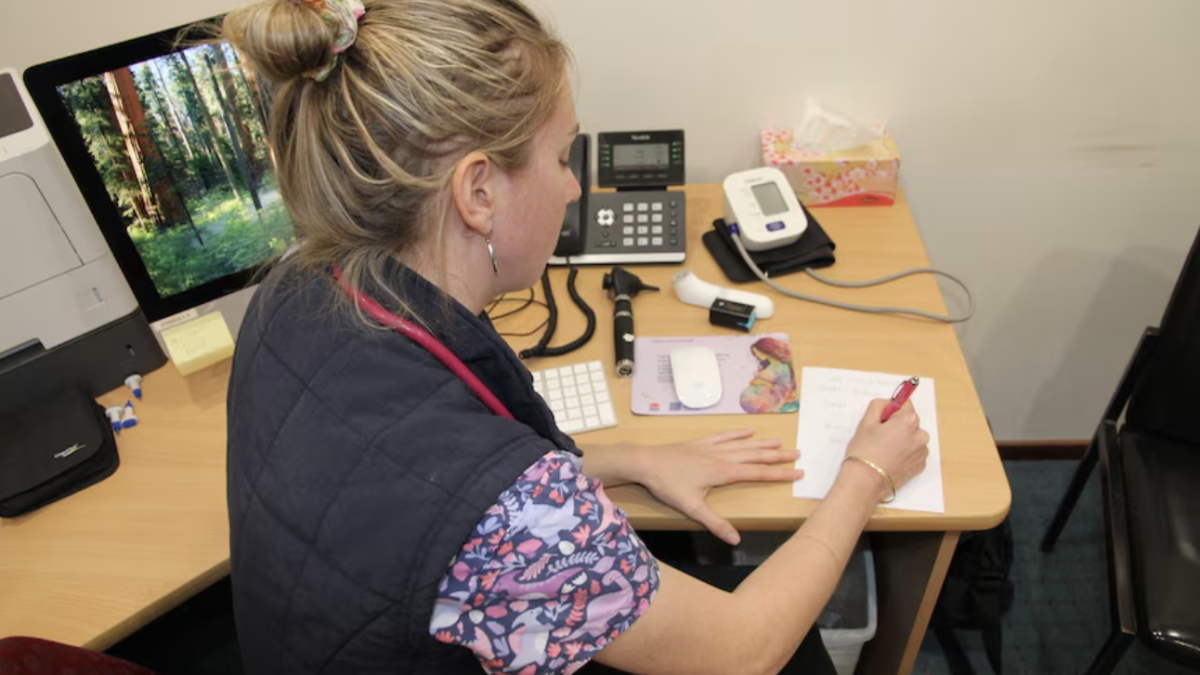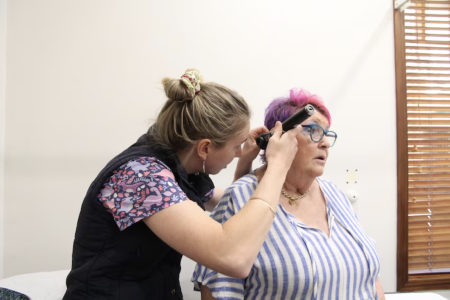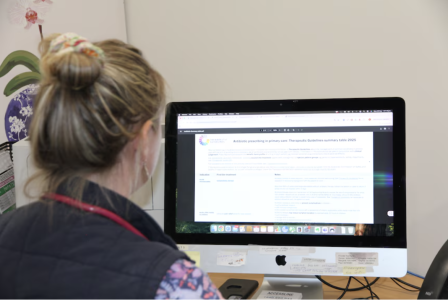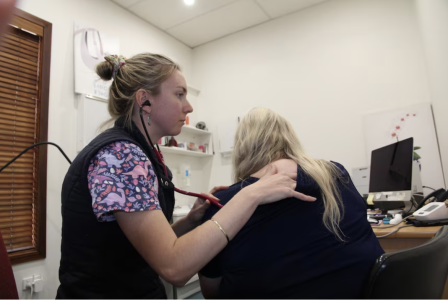
From today, tens of thousands of nurses will become eligible to begin the pathway towards prescribing medicines to patients, a move designed to address critical shortages in the primary healthcare workforce.
Registered nurses will be able to qualify through planned new training programs that will allow them to prescribe medications.
But doctors warn allowing registered nurses to prescribe addictive drugs like fentanyl and oxycodone could pose a risk to patient safety.
What's changing?
Until now, the only health practitioners allowed to prescribe were medical doctors, dentists, optometrists, some pharmacists, nurse practitioners and endorsed midwives.
Nurse practitioners and endorsed midwives are nurses and midwives with additional postgraduate training that expands their scope of practice, including already being allowed to prescribe medicines.
Registered nurses may only have a bachelor's degree as well as registration with a regulatory agency and haven't previously been allowed to prescribe.
But a shortage of GPs means getting an appointment is a major challenge for patients.

In response, Australia's health ministers approved a plan last year to expand the role of registered nurses.
Frances Rice, chief nursing officer at the Australian College of Nursing, said the change would "free up time in a GP's workload".
"A good example would be a person who is stable on medication that they've been on for a long period of time and may need a repeat prescription," Ms Rice said.
"Depending on the medication that they're on and the prescribing agreement … [the registered nurse] could be the one to do the prescription, instead of needing to … make an appointment to see the GP."
What are the requirements for nurses to prescribe?
The change will be a major expansion of the scope of practice for registered nurses, and they must meet stringent requirements to apply for an endorsement to prescribe.
They must complete postgraduate qualifications, be able to demonstrate adequate clinical experience, then participate in a six-month clinical mentorship with an authorised health practitioner.
The registered nurse will then need to establish a formal partnership with an authorised health practitioner, such as a medical doctor. That partnership will involve a prescribing agreement, detailing the circumstances in which the nurse can prescribe drugs.
Ms Rice said that would define the roles and responsibilities of both parties.
"It really is about working together for the benefits of the people that they're looking after in terms of their access, increased access to medicines."
She said there were potentially tens of thousands of nurses who would meet the criteria to complete the program.
"I would think there could be several hundred registered nurses studying this program in the first year that the education programs are available and it could grow significantly from there.
"There's huge potential for this to be a game changer in the health system in terms of equitable and timely access to healthcare and particularly the medications that people need.
"This is a huge change ... the last new prescribers were endorsed midwives and nurse practitioners, and that was 20 years ago."
What medicines can a nurse prescribe?

Once qualified and dependent on the details of the prescribing agreement, the registered nurses can prescribe many of the same drugs as a GP, including Schedule 8 "controlled drugs" such as morphine, fentanyl and oxycodone.
Australian Medical Association (AMA) president Danielle McMullen said while she was broadly supportive of the new initiative, the group was lobbying for more restrictions around "dangerous medications".
"Schedule 8 medicines — things like morphine and other opiates, other drugs of dependence — can be quite difficult to prescribe and manage," Dr McMullen said.
"We think that given there's extra safety controls on the prescribing of those, that that should have continued to have been limited to medical prescribing."
What are the benefits of nurses being able to prescribe?
Registered nurse Rebecca Manski, who lives in Tumut, two hours west of Canberra, has been completing extra study to allow her to prescribe medications.

She is also the practice manager at the town's medical centre and said upskilling the rural healthcare workforce would significantly cut waiting times for rural patients.
"Patients will feel validated that they're being heard and that their conditions are a priority to manage," Ms Manski said.
"Earlier treatment, or prompt treatment, is going to reduce the likelihood of an unnecessary hospital admission."
Is anyone worried about giving nurses extra power?
Doctors say they will continue to lobby for qualified registered nurses to prescribe only Schedule 2, 3 and 4 medicines.
The AMA's Dr McMullen said doctors were more supportive of the new standards for registered nurses than the program that allows qualified pharmacists to prescribe.
"This is a preferred model compared to the pharmacy model. It's been through [the medical regulator] AHPRA and the nursing board and been through a robust process of consultation to develop the framework around it.
"What we have seen in the pharmacy space is … what we would call autonomous prescribing, where … pharmacists, after relatively limited training, have been given quite a broad scope in some states to undertake prescribing."
President of the Royal Australian College of GPs, Dr Michael Wright, said the changes may "reduce the opportunity for coordinated and comprehensive care".
"We know that fragmenting healthcare has been shown to be less safe and more expensive than models that facilitate continuity of care," he said.
"Nurses and nurse practitioners can and should work to top of scope together as part of a multidisciplinary team, which includes a GP. For example, the RACGP advocates for changes to the Medicare Benefits Schedule so vaccinations in general practice can be administered by an appropriately credentialled nurse without direct GP supervision.
"Good primary healthcare is coordinated, collaborative, and continuous. If not properly coordinated under GP supervision, extending scope of practice can lead to confusion, unsafe prescribing or treatment, and duplication of services."
Nurses like Ms Manski are eager to remind patients they will not be working in isolation.
"This isn't a nurse going and doing something independently. They're still going to be working collaboratively with the team around them."
The regulatory change comes into effect today and registered nurses will have to complete extra study and mentorship programs.
Patients may be able to receive prescriptions from qualified registered nurses sometime in 2026.
The Pharmacy Guild was contacted for comment.
Written by Caitlyn Gribbin, ABC News.








